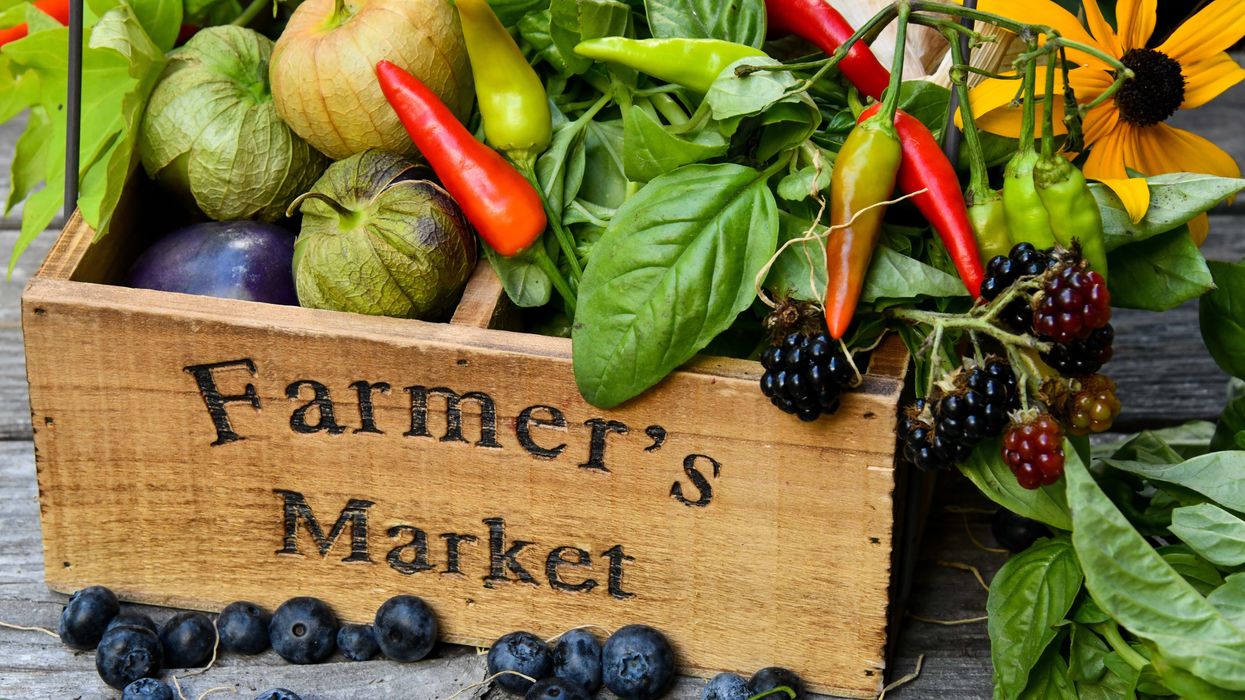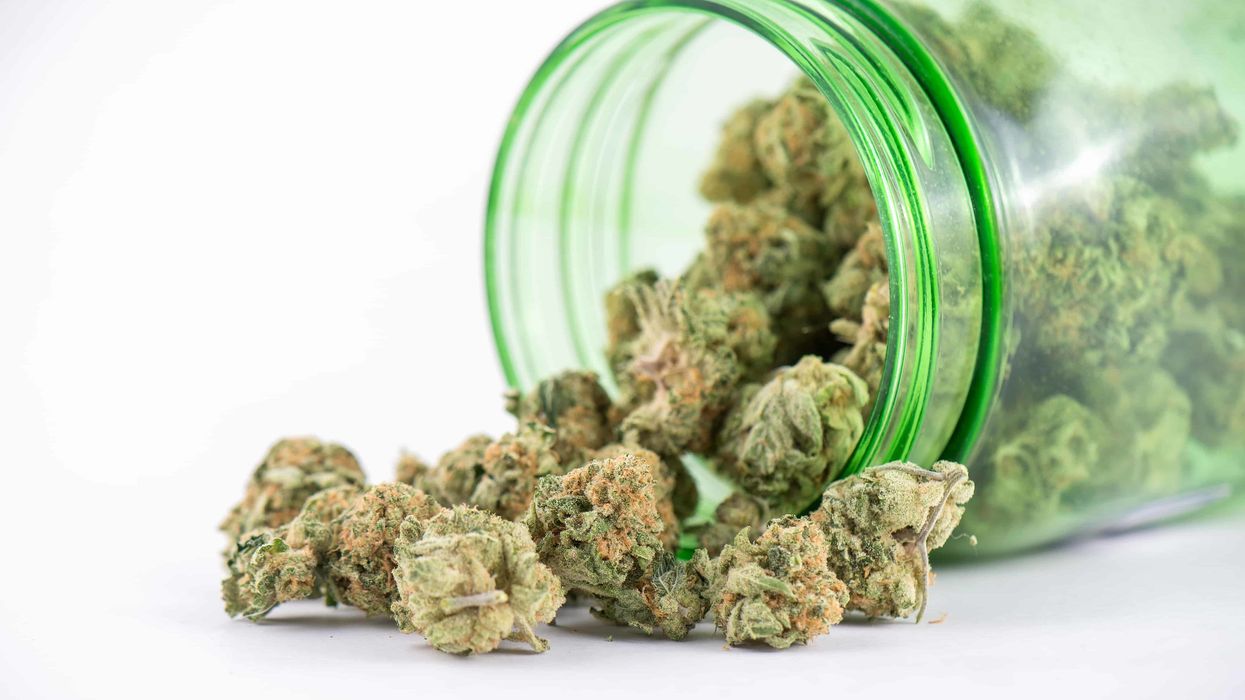The cannabis industry in New York has faced numerous challenges since its legalization, with slow retail rollout leaving cultivators, processors struggling to sell their products.
However, a promising solution is on the horizon according to the Albany Times Union, as the state Cannabis Control Board is set to approve a measure allowing marijuana industry stakeholders to sell stockpiled crops at fairs, festivals, concerts, and other events temporarily.
One of the most compelling avenues for the cannabis industry to thrive in New York is through the establishment of farmers markets or Cannabis Growers' Showcases (CGS) - a first-in-the-nation initiative to allow licensed sales outside of dispensaries.. These markets offer a host of benefits that contribute to the growth and success of the cannabis industry, while simultaneously benefiting farmers, cultivators, retailers and consumers.
The approval of the Cannabis Growers' Showcases - i.e. farmers markets, pop-ups, bazaars, et al - for cannabis offers a glimmer of hope and relief to those affected by the state's sluggish implementation of marijuana legalization. This "growers' showcase" event will not only provide much-needed revenue to the cultivators, processors, and retail license holders but also encourage networking among key players who have been stagnant in terms of sales for months.
However, the markets will be restricted to venues in municipalities that permit cannabis sales and will adhere to local zoning requirements, ensuring responsible and regulated cannabis transactions.
The retail rollout has been further hindered by the rise of illicit marijuana shops, which have mushroomed across the state. These illegal shops have flourished, partly due to lawmakers' decision to legalize marijuana possession immediately after the law's passage in April 2021, long before the retail market was fully operational.
The presence of these unregulated establishments has compounded the challenges faced by licensed operators who have been struggling to navigate bureaucratic blockades in opening legitimate cannabis stores, often investing substantial upfront costs in acquiring or converting properties for that purpose.
The situation has been dire for many farmers who received conditional licenses to cultivate the first crops for New York's retail marijuana market. A recent article by The Bluntness highlighted that dozens of farmers have been unable to sell thousands of pounds of cannabis they grew last year due to the sluggish setup of the industry.
The lack of sufficient retail or delivery stores, with only 20 fully operational since marijuana legalization, has left these farmers in a dire financial predicament, unable to offload their products even as they are preparing to grow this year's crops. Furthermore, the state's prohibition on indoor growing has compounded the problem, limiting their capacity to meet market demand effectively.
In response to the looming oversupply issue, Assemblywoman Donna A. Lupardo, the chair of the Assembly's Committee on Agriculture, expressed optimism about the Cannabis Control Board's expected action on Wednesday.
She had previously introduced a bill that sought to allow New York's more than 200 licensed growers, many of whom operate small farms, to sell their crops to tribal nations within the state. While several tribal nations have supported this proposal, Governor Kathy Hochul has yet to take action on the legislation.
Lupardo acknowledged that navigating the rules for these showcase events might pose challenges, but she encouraged the state Office of Cannabis Management to expedite the process to address the cannabis oversupply problem effectively.
Additionally, she urged the governor to greenlight the bill that allows sales to tribal nations. However, legal complexities surrounding the sale of New York-grown marijuana outside of the state have made the proposal challenging to implement, given that tribal nations are separate political entities with existing marijuana growing, processing, and retail businesses within their boundaries, which are not regulated by New York.
Amid these challenges, some tribal nations have already been proactive in supporting the legalization of temporary cannabis sales. The Shinnecock Indian Nation on Long Island released a memo endorsing the idea, citing the critical importance of allowing such sales as many licensed cultivators and processors face the pressing issue of cannabis with a limited shelf life. Without a swift resolution, these products are at risk of expiration, resulting in significant losses for the businesses.
Efforts to accelerate the pace of the retail marketplace are also underway, with new regulations aimed at strengthening enforcement against thousands of unlicensed shops competing with law-abiding sellers. The Office of Cannabis Management has been empowered to collaborate with law enforcement agencies, allowing them to seize illegal products, issue fines, or shut down non-compliant shops such as Empire Cannabis Club and others.
Allan Gandelman, president of the Cannabis Association of New York, expressed enthusiastic support for the proposal to allow pop-up sale events. He believes that these events will provide farmers with an ideal venue to sell their products directly to consumers while also enabling retail licensees to facilitate those sales and share in the revenues. Gandelman is particularly excited about the prospect of setting up sales at the New York State Fair, which commences in August in Syracuse. However, the exact timeline for the issuance of regulations allowing such showcase events remains uncertain.
Farmers markets not only provide a platform for direct interaction and education between producers and consumers but also foster a local and sustainable economy, community building, and social connections. Moreover, these markets support small-scale producers and entrepreneurs, contributing to market expansion and product diversity while ensuring the success and inclusivity of New York's cannabis industry in the years to come.
However, the devil will be in the details according to Joseph Calderone, COO and Chief Compliance Officer of Grateful Valley Farm and member of the Cannabis Farmers Alliance - “The Grower’s Showcases, established by CANY and OCM have good enough intentions, yet still overlook some of the main concerns of small farmers who want to be able to sell their craft products directly to consumers and dispensaries without intermediaries and without being forced to sell their products alongside other stakeholders.”
“Farmers are the only stakeholders with legal cannabis in New York and yet the only group with a regulatory burden that threatens their very existence - for example, payments will go through a CAURD point of sale (POS) and we will have to sell our products alongside processors products. The OCM is allowing ROs a three-tier macro starting in December, but farmers can’t even sell their products without someone taking a percentage of the sale, which comes after lab costs, older product, taxes and other costs of goods sold. We’re lucky if there’s any income left to operate at break even at this rate. Farmers are bearing the biggest burden in the supply chain and none of the regulations are designed to support this segment of the industry,” Calederone continued.
Several similar events have occurred recently that can serve as a blueprint for compliant farmers markets. One example is the Flower Expo in Massachussetts, Hall of Flowers in CA and the Revelry Buyers' Club - a private, industry-only event for vetted New York licensed operators where retail buyers can directly connect with cultivators, producers, brands, and ancillary companies.
Our experience at the most recent Buyers Club in June provided a unique opportunity to meet and preview brands in a way that I would not have gained simply by looking through a digital directory, and to discover new cultivators and products I might not have considered otherwise. With all of the challenges new CAURD licensees face, Farmers Market’s are a critical event for this industry, making it easier for one of the most important parts of the supply chain - cultivators - to do business directly with consumers.
“Revelry Buyers’ Club will play a pivotal role in shaping the future of the cannabis industry in New York,” said Lulu Tsui, co-founder of On The Revel. “By connecting retailers and brands at the infancy of this rapidly changing market, our expo fosters collaboration, innovation, and responsible business practices — essential components in establishing a sustainable and thriving cannabis economy.”
“The success of any industry is built on solid relationships and meaningful partnerships that drive positive outcomes for all,” said Jacobi Holland, co-founder of On The Revel. “The mission of the Buyers’ Club is to empower operators in the New York cannabis market to create impactful relationships that can cultivate a healthy, collaborative, and sustainable industry.”
Scot Trifilo, owner of Ten-Ten Cannabis, a small-batch family owned & operated farm in Saratoga Springs is very happy with the outcome of yesterday's meeting. "We're been anticipating this for a while and are ready to bring this to life once the final regulations are put in place. All that to say, we're excited by the opportunity and are happy with the decision to allow Cannabis Growers' Showcases throughout the state."
5 Reasons Why Farmers Market’s Make Dollars and Sense
Direct Interaction and Education
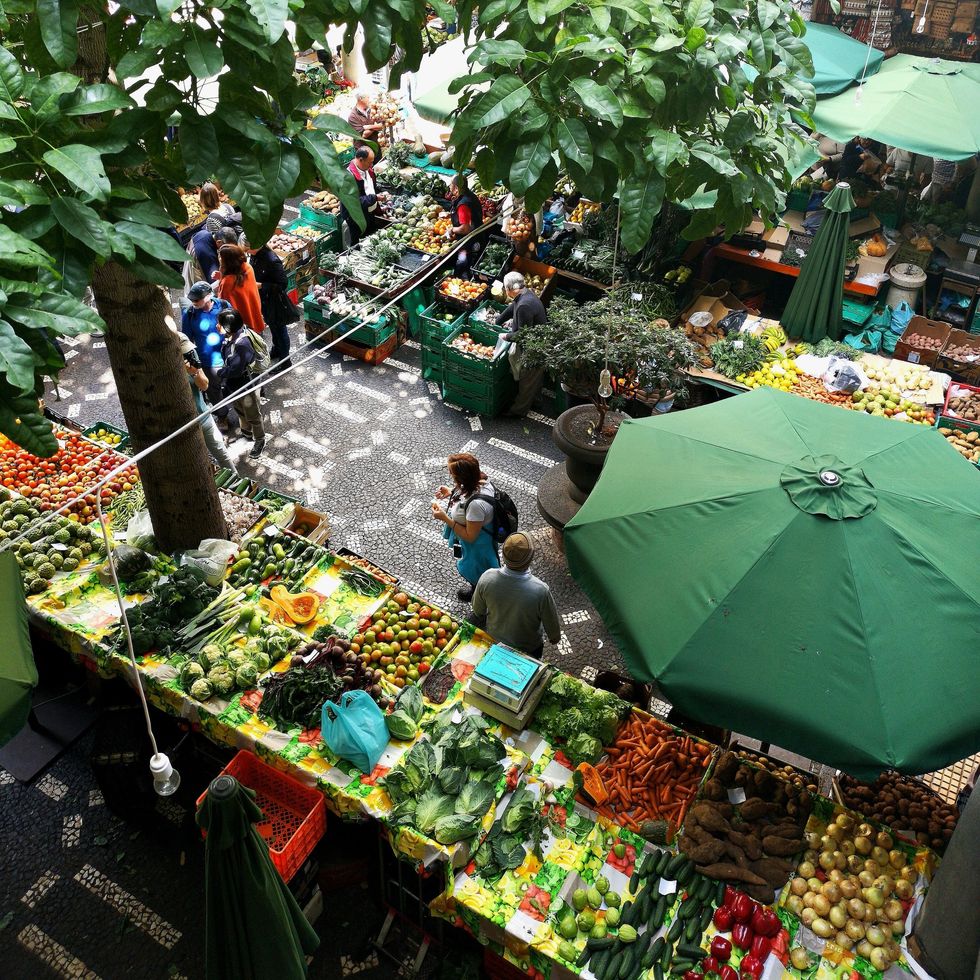
Farmers markets provide a unique opportunity for cannabis producers to directly engage with consumers. Unlike traditional retail settings, farmers markets foster face-to-face interactions, enabling producers to showcase their products and educate consumers about different strains, consumption methods, and cultivation practices.
This personal connection builds awareness, trust, enhances transparency, and empowers consumers to make informed decisions about their cannabis purchases. Through open dialogue, farmers markets facilitate a deeper understanding of the plant and its diverse benefits, effectively destigmatizing cannabis use.
Local and Sustainable Economy
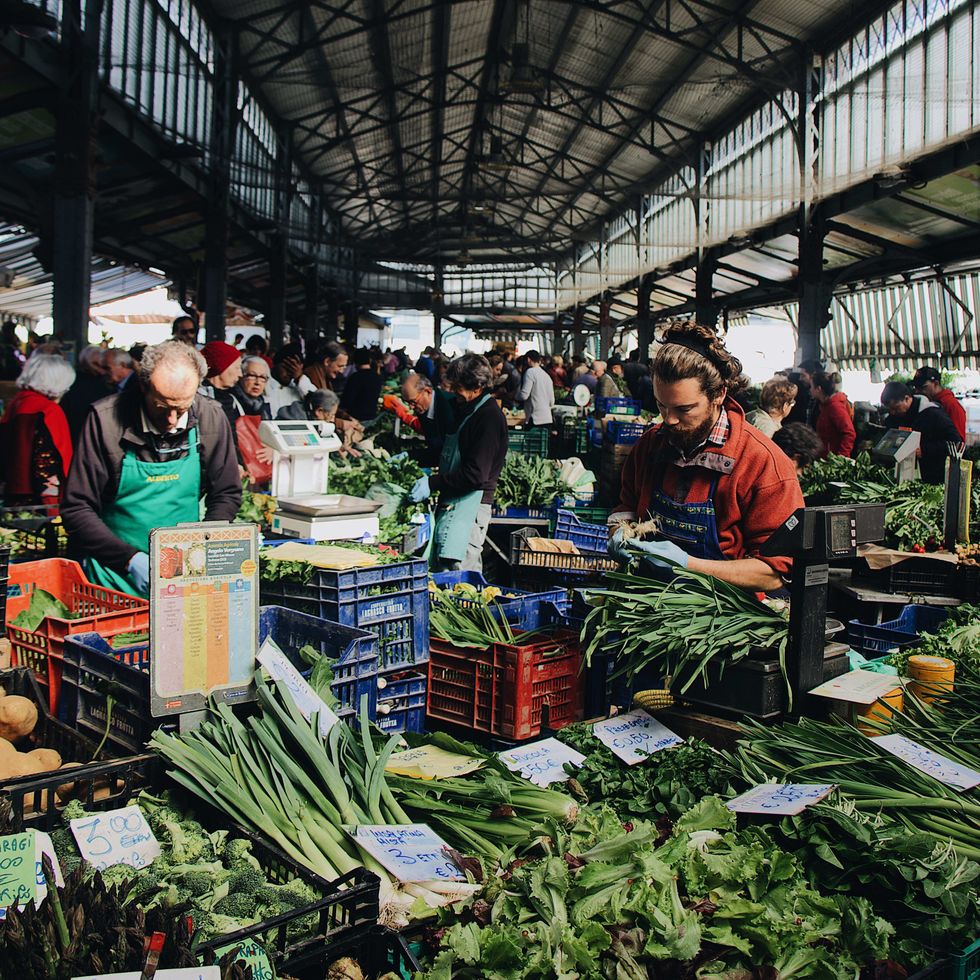
Participating in farmers markets allows cannabis cultivators to strengthen their businesses as well as their local economies. These markets often prioritize locally grown and produced goods, providing small-scale and independent cannabis farmers with a platform to showcase their products alongside related offerings.
This emphasis on local sourcing not only reduces the carbon footprint associated with long-distance transportation but also encourages sustainable cultivation practices.
Farmers markets become a hub for promoting organic, pesticide-free, and environmentally conscious cannabis cultivation methods, bolstering the industry's credibility and sustainability.
Community Building and Social Connection
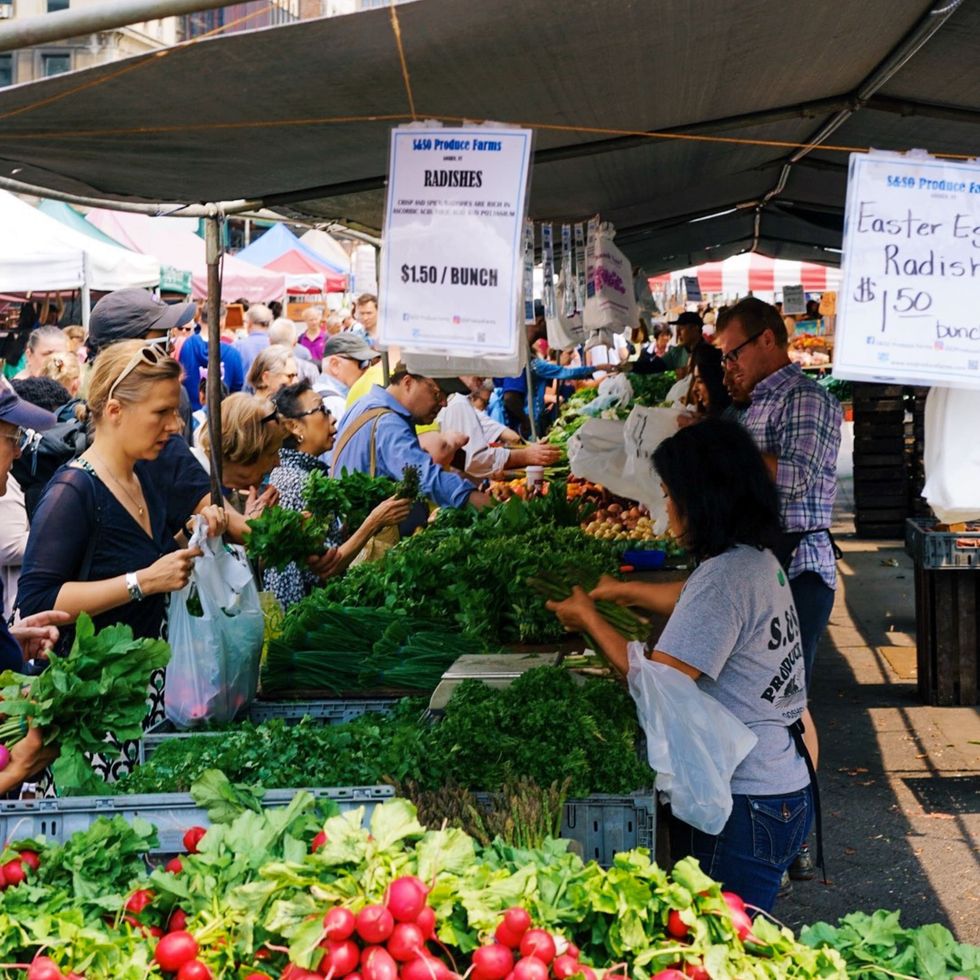
Farmers markets have a long-standing reputation as communal spaces that unite people from diverse backgrounds. They foster a sense of belonging and camaraderie, allowing consumers and producers to establish personal connections that go beyond mere transactions.
In the context of the cannabis industry, farmers markets present an opportunity to break down social barriers, challenge stereotypes, and create a supportive community centered around responsible cannabis use.
By promoting responsible consumption, sharing knowledge, and addressing concerns, these markets can help shift public perception and foster a more inclusive and accepting society - aka normalization.
Market Expansion and Product Diversity

Participating in farmers markets enables cannabis businesses to expand their market reach and diversify their product offerings. Producers can showcase a wide variety of strains, edibles, topicals, and other cannabis-infused products, catering to the evolving preferences and needs of consumers.
Farmers markets also provide a platform for testing new products, receiving direct feedback, and refining offerings based on real-time market demand. This dynamic interaction helps cultivators stay agile and adapt to changing consumer trends, ensuring long-term success in an increasingly competitive industry.
Supporting Small-Scale Producers and Entrepreneurs
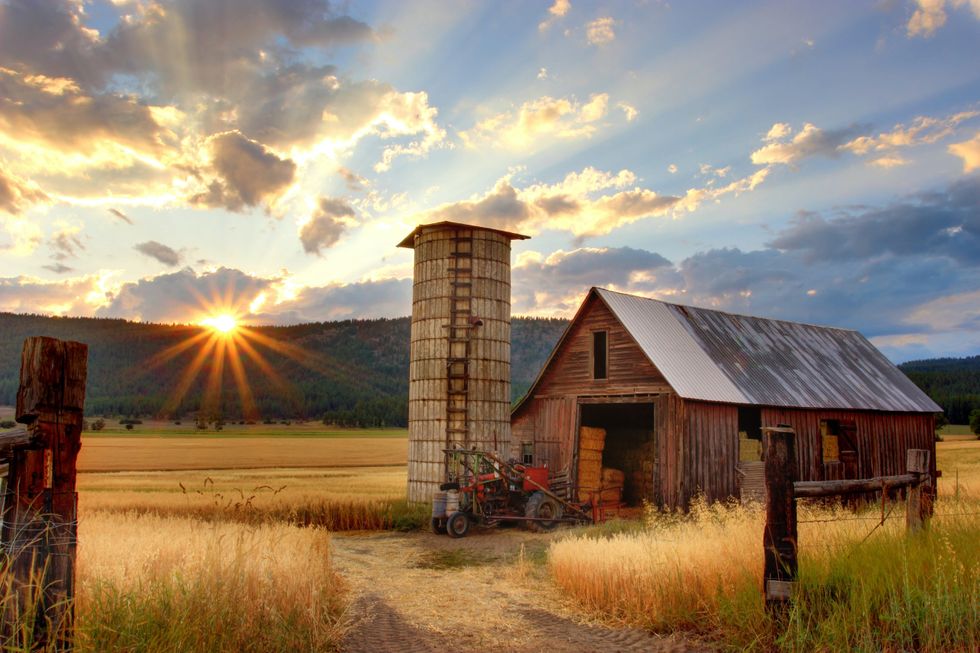
Farmers markets have long been champions of supporting small-scale farmers and local entrepreneurs. In the cannabis industry, where large corporations and well-funded entities can dominate the market, farmers markets level the playing field for small producers to thrive.
By providing affordable booth spaces and a supportive environment, these markets empower small-scale cannabis cultivators, processors, and artisans to enter the industry and showcase their unique offerings. This not only fosters economic growth and job creation but also promotes diversity and innovation within the cannabis market.
The cannabis stands will first need approval from the local government where they will be selling, and they can’t be held in municipalities that have voted not to allow cannabis retail dispensaries.
The rules also require a licensed retailer to work with up to three growers to sell at the outdoor events.
OCM plans to hold town halls over the coming weeks to go over details with growers and retailers. They say they are hopeful that the cannabis sales at the events can begin as soon as the end of the summer.
While it’s too early to judge, Cannabis Growers' Showcases, farmers markets (or whatever we call them) hold immense promise for the growth and success of New York's cannabis industry. They offer a platform for small-scale producers and entrepreneurs to flourish, driving diversity and innovation within the industry.
By embracing the farmers market model, New York can unlock the full potential of its cannabis industry, fostering a more interconnected, sustainable, and inclusive future.
As the cannabis industry continues to evolve, farmers markets will undoubtedly play a crucial role in shaping its prosperous future in the Empire State.
